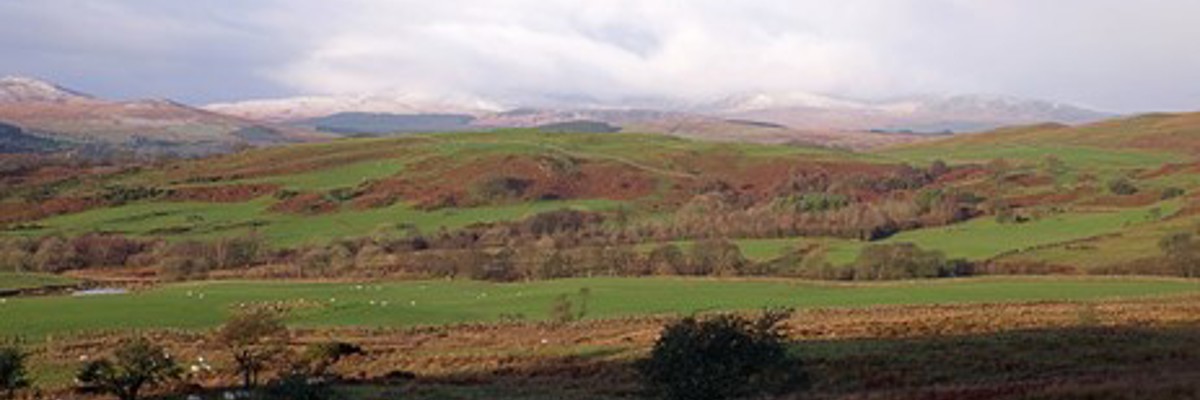
Consultation events begin to help develop land use approach for Net Zero journey
A series of consultation events are set to get underway this month which will allow people across the South to have their say on Scotland’s approach to land use.
The consultation sessions are being run by the South of Scotland Regional Land Use Partnership – one of five pilot RLUPs chosen by the Scottish Government.
The Partnerships will help communities, land managers, national and local government, and other stakeholders work together to find ways to optimise land use in a fair and inclusive way.
This in turn will help meet local and national objectives, support the Just Transition to Net Zero – which Scotland is aiming to achieve by 2045 - and help address biodiversity loss.
The consultation events
The Southern Uplands Partnership and Land Use Consultants have been commissioned to help deliver the consultation events across the region from September to November to allow anyone with an interest in land use to have their say in the RLUP process.
There are 20 consultation dates, 18 in person at venues right across Dumfries and Galloway and the Scottish Borders, and two online. The events run from Wednesday 21 September to Tuesday 8 November.
To book your place, visit here.
Delivery of the South of Scotland RLUP pilot
- The South of Scotland RLUP pilot is being delivered through a partnership of Dumfries and Galloway Council (DGC), Scottish Borders Council (SBC) and South of Scotland Enterprise (SOSE).
- Work started on the South of Scotland RLUP pilot in November 2021 and the first phase of the project included an online survey to gather initial views of local people.
- A range of land use issues were identified such as biodiversity loss, agricultural intensification and lack of diversity in agriculture flood management and impacts from tourism and recreation.
- However, it also identified opportunities for nature-based solutions for climate change adaptation and mitigation.
- These included woodland expansion, peatland restoration and habitat restoration to support natural flood management, alongside renewable energy, regenerative agriculture and agro-forestry, sustainable tourism and enhanced community engagement.
- Once the RLUP structure is established, the core objective for the pilot will be the production of the Regional Land Use Framework (RLUF) by December 2023.
- It will aim to help prioritise future land use change in the region, making the best use of our natural capital to address the twin emergencies of climate change and biodiversity loss.
Professor Russel Griggs, Chair of SOSE said:
“The South of Scotland Regional Land Use Partnership pilot project is aiming to come up with a solution to how we manage the various competing land uses in future years.
“It is vital the Partnership gets the views of as many local people as possible as part of this process.
“This is why I would encourage anyone with an interest in land use and biodiversity to come along to one of the consultation sessions being held from September to November.”
Councillor Katie Hagmann, Chair of Dumfries and Galloway Council’s Economy and Resources Committee said:
“In order to achieve our long-term vision and a sustainable plan, we must work together and act immediately.
“I encourage our local people and communities to participate in this consultation and have their voices heard.”
Councillor Sean Marshall, Vice Chair of DGC’s Economy and Resources Committee said:
“This is an important consultation which will help a multitude of agencies, from government to the landowners, and of course local communities, to form a joint vision to address climate change and sustainable land use.
“Please take part and have your views registered.”
Councillor Jenny Linehan, Scottish Borders Council’s Executive Member for Environment & Transport, added:
“It is crucial for our future, environmental and economic, that we find the right balance on land use, especially in a predominantly rural area like the Scottish Borders.
“The initial survey for this project identified both issues and opportunities, and by working together across the South of Scotland we can tackle those in a way that helps us all.”
